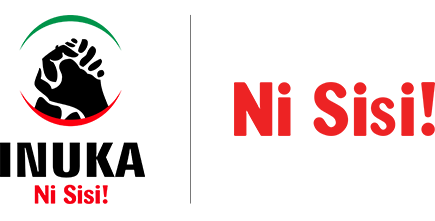
Navigating Generational Differences in the Workplace: A Story of Understanding and Collaboration
In the vibrant, buzzing workplace of today, we find ourselves surrounded by a unique blend of four distinct generations: Baby Boomers, Generation X, Millennials, and Generation Z. Each generation brings its own perspective, work style, and values, creating a rich tapestry of diversity that can either lead to dynamic collaboration or simmering conflict. Let’s take a closer look at how these generational differences play out, and how we can bridge the gaps with curiosity and empathy.
The Senior Executive: Baby Boomer
Meet Linda, a seasoned executive who has dedicated decades of hard work to climb the corporate ladder. Linda, a Baby Boomer, believes in the power of dedication and perseverance. She recalls the days when long hours and unwavering commitment were the keys to success. For Linda, work is more than just a job; it’s a testament to her life’s achievements. She often shares her wealth of experience with younger colleagues, offering guidance and wisdom.
But sometimes, Linda feels overlooked and disrespected by her younger coworkers. She values the organizational hierarchy and finds it frustrating when her experience is dismissed as outdated. Linda thrives when her knowledge is recognized and her advice is taken seriously.
How to Connect with Linda:
- Show respect for her experience and knowledge.
- Be open to her advice and guidance.
- Avoid dismissing traditional methods outright.
- Demonstrate reliability and commitment.
The Independent Achiever: Generation X’s Adaptability
Next, we have Alex, a Gen Xer who grew up during economic downturns and societal changes. Alex is fiercely independent and adaptable, traits honed from a young age. He appreciates clear instructions but prefers to work autonomously. Micro-managing or second-guessing Alex triggers his rebellious streak. He values professionalism and a low-drama work environment, where results speak louder than words.
Alex often finds himself clashing with both older, autocratic managers and younger, disorganized colleagues. His priority is a healthy work-life balance, and he expects the same from his workplace.
How to Connect with Alex:
- Give him space and autonomy.
- Provide clear expectations and goals.
- Avoid micromanaging.
- Be flexible with work schedules.
The Enthusiastic Innovator: Millennial Energy
Then there’s Kanze, a Millennial bursting with energy and enthusiasm. Kanze thrives in team-oriented environments that encourage innovation. Comfortable with technology and remote work, Kanze values flexibility and expects recognition for achievements. Positive feedback fuels Kanze’s drive, and a lack of it feels like personal criticism.
Millennials like Kanze prioritize work-life balance, not because of a lack of commitment but due to a desire to achieve great results on their own terms. They seek opportunities for growth and advancement and are not afraid to pursue new opportunities if their ambitions are stifled.
How to Connect with Kanze:
- Compliment achievements.
- Acknowledge contributions.
- Provide growth opportunities.
- Be open to new ideas.
The Creative Problem-Solver: Generation Z’s Fresh Perspective
Finally, meet Sam, a Gen Z who brings abundant energy, creativity, and fresh perspectives to the workplace. Growing up with social media and smartphones, Sam is a natural multitasker, adept at finding innovative solutions. Despite a strong affinity for technology, Sam craves personal interactions and values friendly relationships with coworkers and managers.
Sam often feels frustrated by dismissive attitudes from older colleagues who underestimate their capabilities. Gen Z values being taken seriously and contributing meaningfully, despite their young age.
How to Connect with Sam:
- Show respect through bi-directional conversations.
- Allow use of preferred technology.
- Enlist their problem-solving skills.
- Create an inclusive and collaborative environment.
Conflict in the Workplace: Is It a Generational Thing?
Imagine a team meeting where Linda, Alex, Kanze, and Sam are collaborating on a project. Linda’s extensive experience guides the team, but Alex resents being micromanaged. Kanze proposes a new tech-driven approach, which Linda finds unconventional. Sam, eager to contribute, feels dismissed by the others.
This scenario highlights how generational differences can lead to misunderstandings and conflict. However, it’s not just about generational divides; it’s about recognizing and valuing each individual’s unique strengths and perspectives. By approaching each other with curiosity instead of judgment, we can create a harmonious work environment where everyone feels respected and heard.
Bridging the Generational Gaps
Understanding generational differences is a valuable tool in our workplace toolkit, but it’s not a catch-all solution. Each person is unique, and not everyone fits neatly into generational stereotypes. Embracing these differences with empathy and openness allows us to build a collaborative, respectful workplace where everyone’s voice matters.
